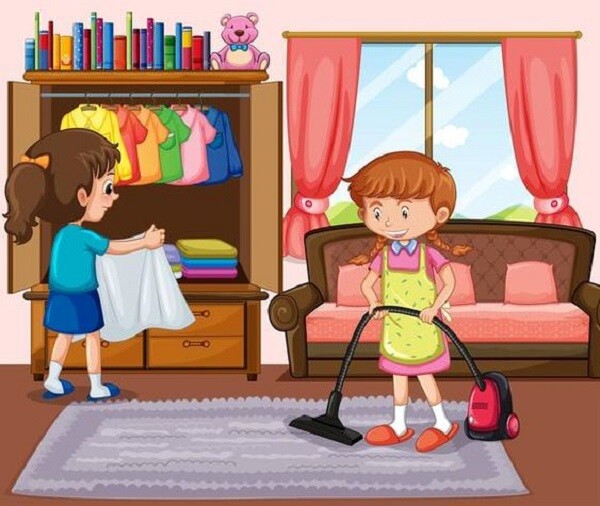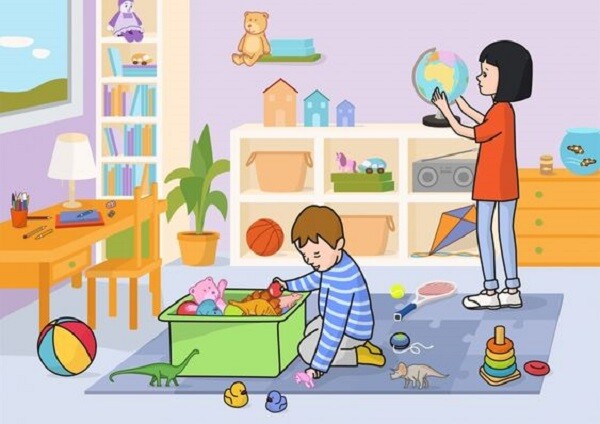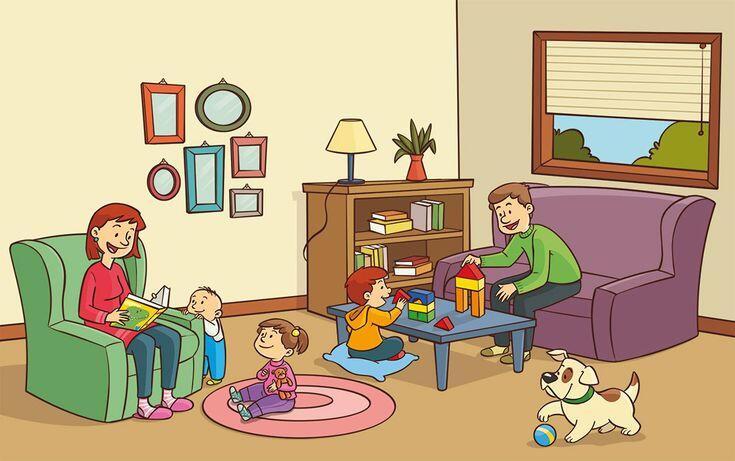While expressing love and care for children is essential, many experts caution that excessive indulgence can have adverse effects on their long-term development and sometimes hinder their ability to become self-reliant.
Hence, “growing up with chores” has become a pivotal approach to fostering children’s self-reliance.

Chores: A Way to Self-Care
Household chores, though seemingly simple, offer a natural learning environment for children to develop a sense of responsibility, self-discipline, and life skills. Daily tasks such as tidying up their rooms, washing dishes, or helping out in the kitchen are not just obligations but opportunities for self-improvement.
Through participation in these activities, children can experience the hardships and joys of labor and learn to appreciate the fruits of their and others’ labor.

A way to self-care.
When children take on these tasks, they understand the value of hard work and diligence, gradually fostering a love and respect for life. These experiences help them recognize the connection between effort and outcome, encouraging a growth mindset and gratitude for their blessings.
Moreover, in this process, children learn effective time management. They must balance completing chores with studying or leisure activities, fostering planning and organizational skills. They realize that success requires sacrifice and effort, forming a solid foundation for independent living, where they can take care of themselves, from preparing meals to maintaining personal hygiene.

Independence: Wings for Growth
Self-reliance is a necessary tool for children to integrate into society and face challenges. It encompasses not just self-care activities like dressing, eating, or organizing personal belongings but also encompasses qualities such as independent thinking, problem-solving skills, and accountability to oneself and others.
Independence builds confidence and lays the groundwork for character development, empowering children to navigate any situation confidently.
When children accomplish household tasks on their own, a sense of achievement and confidence emerges naturally. Tasks like cleaning, cooking, or pet care teach practical skills and instill perseverance. Children realize that each task, no matter how small or large, holds value and contributes to their growth and family well-being.

Nurturing a better future.
These positive psychological experiences encourage children to explore the unknown and bravely face challenges. As they find joy in task completion, they seek new endeavors, from extracurricular activities to learning new skills. This fosters creativity and adaptability, enabling them to navigate life’s diverse situations effectively.

Strengthening Bonds: Parent-Child Interaction
Notably, chores present a valuable opportunity to strengthen the parent-child relationship and promote emotional communication. These shared moments of household work can forge beautiful memories, where closeness and love are cultivated through simple actions.
Parents can involve their children in planning chores, assigning tasks, and providing guidance and encouragement. This shared experience helps children feel the warmth of family and deepens their understanding of collaboration and family responsibility. Witnessing their parents work together, children grasp the significance of each family member’s role in maintaining a harmonious and cozy home.

Enhancing parent-child interaction.
In the midst of laughter and lighthearted conversations, family bonds strengthen, and harmony prevails. These moments not only make children feel loved but also create a safe space for them to express their emotions, thoughts, and opinions. This aspect is crucial for developing their communication skills and self-confidence.
Through household activities, a microcosm of daily life, children can effectively nurture their independence. These daily tasks offer a learning-by-doing approach, enabling them to grow through challenges and embrace a resilient and self-reliant mindset.







































